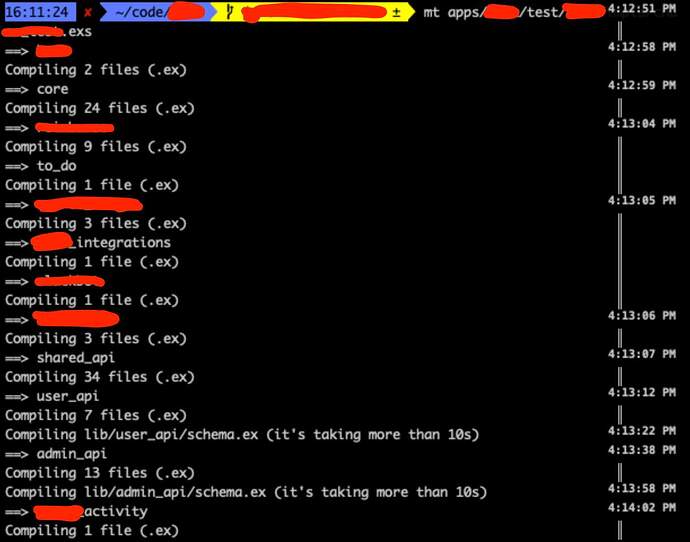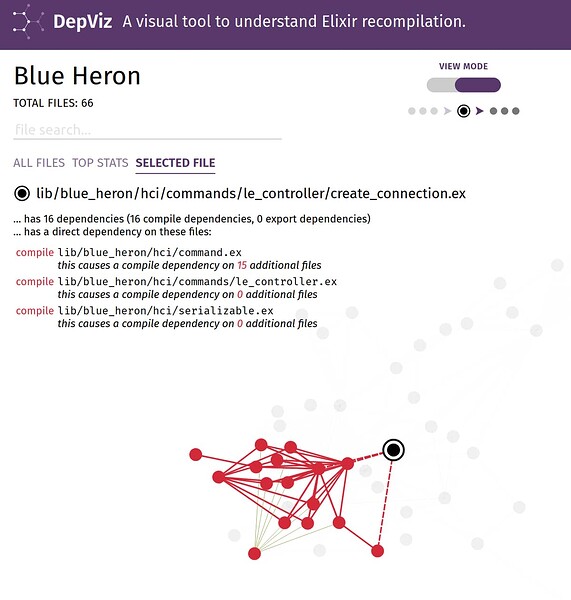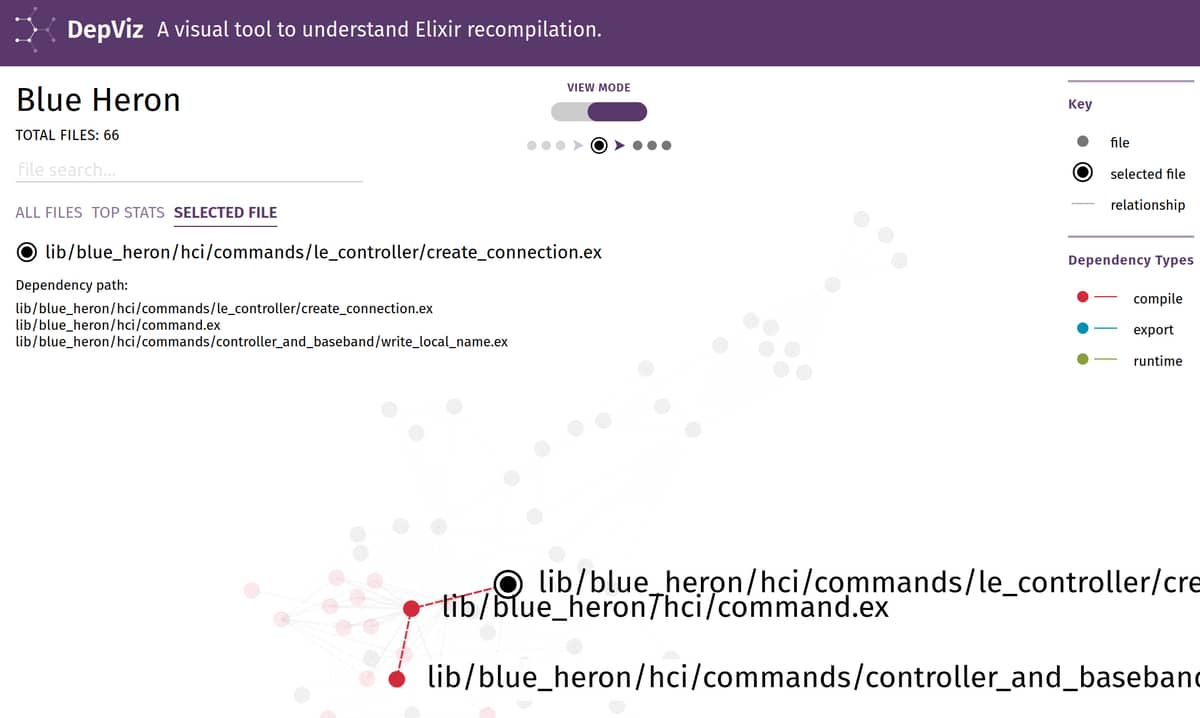I use Elixir at work, on a pretty massive monolithic backend project – it’s about 750k lines of Elixir code, spread across a few dozen apps, all within one big umbrella app. It seems like this is fairly uncommon, as most Elixir apps I hear about online or in various forums are much smaller. Even the Elixir codebase itself is less than half as big as that.
One of the main gripes I have of working with Elixir is the slow compile times. Of course, compiling a large project is expected to take a long time. However, even when I make the smallest changes imaginable, Elixir decides to recompile many files, resulting in a frustratingly slow dev cycle. I’m wondering if anything can be done about this.
The concrete example is that when I add a single IO.inspect() in a module deep in the dependency tree, it requires many other files to be recompiled before it can proceed. Here’s my terminal output from when I did that recently (keep in mind this is only adding a single IO.inspect() call in 1 file:)
(Note: mt in my terminal command is just an alias for mix test)
See the timestamps on the right – re-compilation took over 1 whole minute after making that tiny change! The reason being, of course, that Elixir decided to recompile nearly 100 files across 12 other apps in the umbrella app.
I’d love to share the code to make the example clearer, but of course, that code belongs to my company and is not open source. So I’ll have to resort to hypothetical examples.
Now, I understand that if file A is depended on by file B, then if file A changes, file B should be recompiled as well. What I don’t understand, and the purpose of this post is to ask about, is why files that transitively depend on a changed file must also be recompiled?
Said another way:
- Let’s say you have 5 files in a project: A, B, C, D, and E. Each file depends on only one other file, but it’s in a line, like so: A ← B ← C ← D ← E – so E depends only on D, D depends only on C, C depends only on B, B depends only on A, etc.
- Change file A. For example, add an
IO.inspector something simple. - Run
mix compile. Elixir will now recompile, not just the changed file (A) and the one that depends on it (B), but every file that depends on another file that depends on A – in other words, the entire project: files A, B, C, D, and E.
Why is this? Can anything be done about it?
I haven’t contributed to the Elixir codebase before, but I’d love to learn how. I feel confident that any time spent improving this situation would save a lot of time for devs working at my company, as well as any other devs working on a large codebase like this.
Thank you for anyone who took the time to read this post! I look forward to any responses.


























